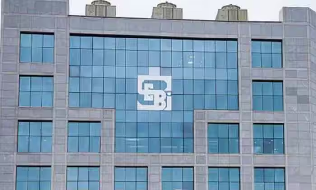Market regulator, the Securities and Exchange Board of India (SEBI) has taken strict action in a front-running case, banning PNB Met Life Insurance Company’s equity dealer Sachin Bakul Dagli and eight other entities from the stock market.
According to the SEBI, front running was being done by Dagli and eight entities for more than three years and during this period, all of them collectively earned illegal profits of Rs 21.16 crore. The market regulator banned Dagli and the eight entities from the stock market and seized the unlawful gains.
The SEBI had investigated some suspicious front-running trades related to PNB MetLife India Insurance before this action. The focus of this investigation was to find out whether the suspicious entities were doing front running in the trade of PNB MetLife India Insurance with the help of other people, including dealers and fund managers. It also sought to find whether SEBI rules have been violated or not.
The investigation, which was conducted from January 1, 2021, to July 19, 2024, revealed that most of the trading decisions at PNB MetLife were assigned to Dagli for execution. The investigation found that Dagli, the equity dealer of PNB MetLife, and his brother Tejas Dagli, an equity sales trader at Investec, obtained confidential, non-public information about the upcoming trading decisions of PNB MetLife and Investec.
This information was further used to make trading decisions and shared with Sandeep Shambharkar, who executed front-running trades through the accounts of Dhanmata Realty Private Ltd (DRPL), Worthy Distributors Private Ltd (WDPL), and Pragnesh Sanghvi.
DRPL and WDPL Directors Arpan Kirtikumar Shah, Kabita Saha, and Jignesh Nikulbhai Dabhi were also involved in carrying out this task. The SEBI said that 6,766 front-running trades have been executed. A profit of Rs 21,15,78,005 was earned from this.
Front-running is an illegal practice, entailing a trader or broker receiving confidential information about a large company or institution making a bulk order in a particular stock and creating a position in that particular stock before the big order is executed. In such a situation, when the order is executed by a big company or institution, the trader or broker gets the benefit of the sudden rise in that stock.



